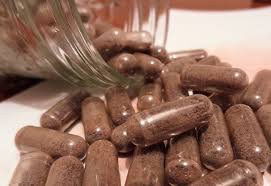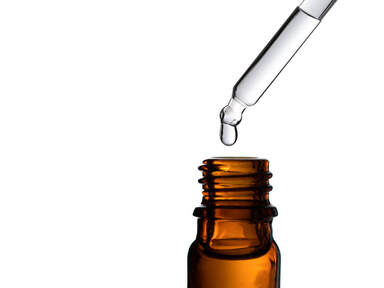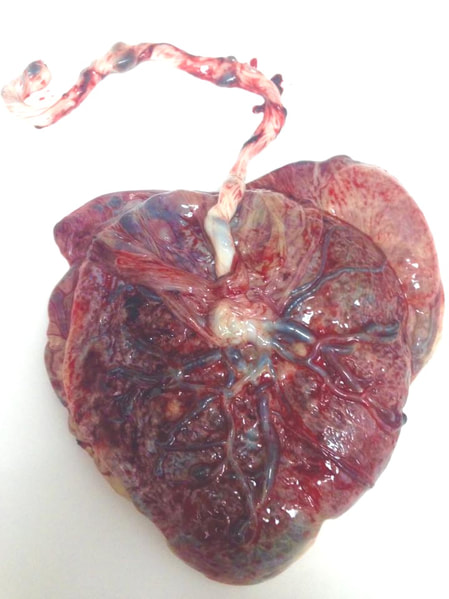Placenta Encapsulation with CarolMarie Fiorito
Certified Placenta Encapsulation Specialist serving NYC
One of the greatest ways a postpartum mother can support her body's physical and emotional changes is to take her placenta as medicine. Did you know that every mammal (with the exception of camels and some humans) will consume their placenta after birth?! There are many benefits of having your placenta encapsulated into capsules.
Some of the potential benefits of placenta encapsulation are:
- Preventing post partum depression
- Increasing breast milk production
- Balancing hormones
- Giving the mother a steady level of energy at a highly demanding time
- Accelerating the mother’s healing
- Decreasing sleep dysfunction
- Supporting normal iron and mineral levels
Some of the potential benefits of placenta encapsulation are:
- Preventing post partum depression
- Increasing breast milk production
- Balancing hormones
- Giving the mother a steady level of energy at a highly demanding time
- Accelerating the mother’s healing
- Decreasing sleep dysfunction
- Supporting normal iron and mineral levels
What is Placenta Encapsulation?
|
Placenta encapsulation is a method of cooking, dehydrating and encapsulating the placenta into capsules for easeful consumption by the postpartum mother.
The method I use is the Traditional Chinese Medicine (TCM) method of steaming with organic lemon and organic ginger root, drying at a low temperature and then encapsulating into medium sized 00 vegan capsules. I use reverse osmosis alkaline water for steaming your placenta, the highest quality tools and ingredients every step of the way, and create a respectful meditative space with reiki energy flowing during the process. This creates a medicine, used for centuries, known as Zi he che; a tonifying and warm but not drying gradual harmonious supplement that is "superior for augmenting the qi and the blood" and "it also promotes lactation" (From Hidden Aspects of Materia Medica) You may also choose a 4oz placenta tincture which is a wonderful method of preserving the placenta for long term use after the pills run out. Many women hold on to some of theirs until peri-menopause to support their hormonal transition. A small piece of your placenta is preserved and fermented in high quality, gluten-free vodka and will be ready in 6 weeks time. |
Placenta Services and Fees

Full Service Placenta Encapsulation $350
Includes:
Pre-natal phone consultation
Pick up of placenta from hospital or home
Traditional Chinese Method of preparation and encapsulation
Delivery of your pills to hospital or home
Umbilical Cord keepsake
Follow-up support via phone or email
Dosage guidelines
Includes:
Pre-natal phone consultation
Pick up of placenta from hospital or home
Traditional Chinese Method of preparation and encapsulation
Delivery of your pills to hospital or home
Umbilical Cord keepsake
Follow-up support via phone or email
Dosage guidelines

Placenta tincture $45
(add-on available with encapsulation)
Includes:
4oz with gluten-free vodka or organic apple cider vinegar
Shipped or hand delivered to you
Preserves placenta for life-time use
Dosage guidelines
Ready in 6 weeks
The turn over time for capsule preparation is 1-3 days.
I get this powerful medicine into your hands quickly and safely so you and your baby may enjoy the many benefits ASAP.
For travel to Staten Island, Jersey, Westchester, and Long Island, there is an additional $50 travel fee. Thank you.
(add-on available with encapsulation)
Includes:
4oz with gluten-free vodka or organic apple cider vinegar
Shipped or hand delivered to you
Preserves placenta for life-time use
Dosage guidelines
Ready in 6 weeks
The turn over time for capsule preparation is 1-3 days.
I get this powerful medicine into your hands quickly and safely so you and your baby may enjoy the many benefits ASAP.
For travel to Staten Island, Jersey, Westchester, and Long Island, there is an additional $50 travel fee. Thank you.
A note about the ongoing COVID-19 pandemic-
I was able to continue preparing placentas during the height of the pandemic, upholding the same rigorous standards I have always used. I wear sterile, non latex gloves, and disposable surgical mask at all times while handling your placenta.
I am fully vaccinated and boosted with the Pfizer mRNA Covid-19 vaccine.
I was able to continue preparing placentas during the height of the pandemic, upholding the same rigorous standards I have always used. I wear sterile, non latex gloves, and disposable surgical mask at all times while handling your placenta.
I am fully vaccinated and boosted with the Pfizer mRNA Covid-19 vaccine.
~ Your Frequently Asked Questions, Answered ~
Q: Which hospitals do you service?
A: I've been to nearly ever hospital that delivers babies in NYC and the surrounding areas :-) I can usually provide inside information about their policies when we have our consultation. This list is not exhaustive: NYU Langone Manhattan, NYU Langone Brooklyn, Mount Sinai East, Mount Sinai West, Lenox Hill, Weill Cornell, NYP Lower Manhattan, Maimonides, Morgan Stanley Children's, Bellevue, NY Presbyterian Allen, Montefiore, Methodist, Albert Einstein, NY Presbyterian Queens, Katz Women's Hospital, Birthing Center of NY, The Birth Center of NJ, Lawrence Hospital Bronxville, Jersey City Medical Center. Again, not an exhaustive list!
Q: What do I need to provide for the processing of my placenta?
A: I provide all the materials necessary for preparation of the placenta and processing into pills. All you need to provide is your placenta. Bringing an insulated bag to the hospital or birth center is recommended. See below for information regarding the handling and transport of your placenta.
Q: How should the placenta be handled or treated from the time of birth until the time of processing and preparation?
A: If you are having a hospital birth, ask your nurse or doula to double bag the placenta in a biohazard bag, large zip-lock, or hospital supplied plastic container. Every nurse has their own way of doing this. I recommend bringing two of your own gallon sized zip-lock bags and a plastic food storage container. Do not rely on the hospital to provide a container (though they almost always do). The placenta should be put on ice and refrigerated as soon after birth as possible. The ziplock bags are excellent for packing with ice. Depending on our arrangement I may come to retrieve it from the hospital or from your home. I suggest bringing a small cooler or insulated bag to the hospital to keep it on ice and to transport the placenta. I will make arrangements with your partner/doula/point person to pick up the placenta and will take the entire cooler bag with me, returning it along with your prepared pills. The placenta must be properly refrigerated or frozen until preparation. The placenta may remain on ice in the cooler bag for 18 hours after delivery. Afterwards it must be refrigerated. If the placenta will be prepared within 72 hours after delivery, then it may remain in the refrigerator. If the placenta will not be processed until after 72 hour after delivery, then it should be placed in the back of the freezer where the temperature is most consistent.
Q: How do I obtain my placenta following the birth?
A: If you are having a homebirth, your midwife or doula will usually double bag it and ask if you want it refrigerated, frozen or thrown out. Follow the guidelines mentioned above for handling and storage guidelines. It is important to talk with your care provider about your wishes for the placenta before you go into labor. If you are having a hospital birth, be sure to speak with your primary care provider ahead of time. Find out what your hospital’s policy is for the release of placenta. Tell your primary care provider you plan to take your placenta home after birth. This should be noted in your chart and mentioned in your birth plan. In NY you will also need to sign a release/waiver to take home your placenta.
In New York State, hospitals are allowed to release healthy placentas according to the New York State Department of Health. See their statement from February 2010 below:
“NYS regulated hospitals and medical facilities may, at the request of a patient or patient’s representative, return a healthy placenta for disposition by the patient without violating any NYS public health law or regulation.
NYS does have regulations (10 NYCRR section 405.24(d)), requiring hospitals to implement waste management programs in compliance with the Public Health Law Article 13, Title XIII for regulated medical waste. Regulated medical waste is defined in the Environmental Conservation Law section 27-1502(2)(b) as waste generated in the diagnosis, treatment or immunization of human beings and includes “human pathological wastes, including tissues, organs, body parts and body fluids that are removed during surgery.” However, waste material is material which is being discarded. If a placenta is not discarded but rather used for medical/religious/cultural purposes, then it is not classified as waste. There is no provision in statute or regulation expressly prohibiting the return of a healthy body part to a living patient.”
Q: What kind of capsules do you use?
A: I use kosher, vegetarian based 00 sized capsules. They are medium sized and easy to swallow.
Q: How many capsules will my placenta make?
A: This depends on the size of your placenta. Between 80 and 200!
Q: How long does the encapsulation process take?
A: The process takes place over a period of two days. You can expect a 1.5-3 day turn-over time.
Q: What supplies do you use and how they are stored and sterilized?
A: The supplies I use during the encapsulation process are all stainless steel and food-grade plastic. All equipment is washed with antibacterial soap and sanitized with a hydrogen peroxide solution. Stainless steel equipment is boil-sanitized. The preparation area is fully cleaned and sanitized with food-grade hydrogen peroxide solution prior to and after processing of the placenta. All equipment is thoroughly washed and sanitized prior to storage and again before use.
Q: Are you trained or certified to do this?
A: Yes :) After preparing placentas for my friends and family I decided to get formal training. It was a natural addition to my 12+ years in the holistic health field. I am trained as a Placenta Encapsulation Specialist by Jodi Selander's rigorous Placenta Benefit's University course. I have been preparing placentas professionally since 2014. Follow the link for more info.
Q: OK! I’m in labor! Now what?!
A: When you know with certainty that you are in labor please call or text me at 347-400-5040. You may also have your birthing partner contact me. Then contact me again after giving birth. I will pick up the placenta between the hours of 8:30am and 10pm, 7 days/week.
Q: What happens if you are out of town when I give birth?!
A: It depends. If it is for less than 3 days then you simply have it brought home by your birthing partner and stored in the fridge. If it is for more than 3 days I can arrange for another placenta specialist to be on call.
Your To-Do Check-list:
Q: Which hospitals do you service?
A: I've been to nearly ever hospital that delivers babies in NYC and the surrounding areas :-) I can usually provide inside information about their policies when we have our consultation. This list is not exhaustive: NYU Langone Manhattan, NYU Langone Brooklyn, Mount Sinai East, Mount Sinai West, Lenox Hill, Weill Cornell, NYP Lower Manhattan, Maimonides, Morgan Stanley Children's, Bellevue, NY Presbyterian Allen, Montefiore, Methodist, Albert Einstein, NY Presbyterian Queens, Katz Women's Hospital, Birthing Center of NY, The Birth Center of NJ, Lawrence Hospital Bronxville, Jersey City Medical Center. Again, not an exhaustive list!
Q: What do I need to provide for the processing of my placenta?
A: I provide all the materials necessary for preparation of the placenta and processing into pills. All you need to provide is your placenta. Bringing an insulated bag to the hospital or birth center is recommended. See below for information regarding the handling and transport of your placenta.
Q: How should the placenta be handled or treated from the time of birth until the time of processing and preparation?
A: If you are having a hospital birth, ask your nurse or doula to double bag the placenta in a biohazard bag, large zip-lock, or hospital supplied plastic container. Every nurse has their own way of doing this. I recommend bringing two of your own gallon sized zip-lock bags and a plastic food storage container. Do not rely on the hospital to provide a container (though they almost always do). The placenta should be put on ice and refrigerated as soon after birth as possible. The ziplock bags are excellent for packing with ice. Depending on our arrangement I may come to retrieve it from the hospital or from your home. I suggest bringing a small cooler or insulated bag to the hospital to keep it on ice and to transport the placenta. I will make arrangements with your partner/doula/point person to pick up the placenta and will take the entire cooler bag with me, returning it along with your prepared pills. The placenta must be properly refrigerated or frozen until preparation. The placenta may remain on ice in the cooler bag for 18 hours after delivery. Afterwards it must be refrigerated. If the placenta will be prepared within 72 hours after delivery, then it may remain in the refrigerator. If the placenta will not be processed until after 72 hour after delivery, then it should be placed in the back of the freezer where the temperature is most consistent.
Q: How do I obtain my placenta following the birth?
A: If you are having a homebirth, your midwife or doula will usually double bag it and ask if you want it refrigerated, frozen or thrown out. Follow the guidelines mentioned above for handling and storage guidelines. It is important to talk with your care provider about your wishes for the placenta before you go into labor. If you are having a hospital birth, be sure to speak with your primary care provider ahead of time. Find out what your hospital’s policy is for the release of placenta. Tell your primary care provider you plan to take your placenta home after birth. This should be noted in your chart and mentioned in your birth plan. In NY you will also need to sign a release/waiver to take home your placenta.
In New York State, hospitals are allowed to release healthy placentas according to the New York State Department of Health. See their statement from February 2010 below:
“NYS regulated hospitals and medical facilities may, at the request of a patient or patient’s representative, return a healthy placenta for disposition by the patient without violating any NYS public health law or regulation.
NYS does have regulations (10 NYCRR section 405.24(d)), requiring hospitals to implement waste management programs in compliance with the Public Health Law Article 13, Title XIII for regulated medical waste. Regulated medical waste is defined in the Environmental Conservation Law section 27-1502(2)(b) as waste generated in the diagnosis, treatment or immunization of human beings and includes “human pathological wastes, including tissues, organs, body parts and body fluids that are removed during surgery.” However, waste material is material which is being discarded. If a placenta is not discarded but rather used for medical/religious/cultural purposes, then it is not classified as waste. There is no provision in statute or regulation expressly prohibiting the return of a healthy body part to a living patient.”
Q: What kind of capsules do you use?
A: I use kosher, vegetarian based 00 sized capsules. They are medium sized and easy to swallow.
Q: How many capsules will my placenta make?
A: This depends on the size of your placenta. Between 80 and 200!
Q: How long does the encapsulation process take?
A: The process takes place over a period of two days. You can expect a 1.5-3 day turn-over time.
Q: What supplies do you use and how they are stored and sterilized?
A: The supplies I use during the encapsulation process are all stainless steel and food-grade plastic. All equipment is washed with antibacterial soap and sanitized with a hydrogen peroxide solution. Stainless steel equipment is boil-sanitized. The preparation area is fully cleaned and sanitized with food-grade hydrogen peroxide solution prior to and after processing of the placenta. All equipment is thoroughly washed and sanitized prior to storage and again before use.
Q: Are you trained or certified to do this?
A: Yes :) After preparing placentas for my friends and family I decided to get formal training. It was a natural addition to my 12+ years in the holistic health field. I am trained as a Placenta Encapsulation Specialist by Jodi Selander's rigorous Placenta Benefit's University course. I have been preparing placentas professionally since 2014. Follow the link for more info.
Q: OK! I’m in labor! Now what?!
A: When you know with certainty that you are in labor please call or text me at 347-400-5040. You may also have your birthing partner contact me. Then contact me again after giving birth. I will pick up the placenta between the hours of 8:30am and 10pm, 7 days/week.
Q: What happens if you are out of town when I give birth?!
A: It depends. If it is for less than 3 days then you simply have it brought home by your birthing partner and stored in the fridge. If it is for more than 3 days I can arrange for another placenta specialist to be on call.
Your To-Do Check-list:
- Notify doctor and birthing partners of plan to keep placenta. Inquire about hospital policy.
- Complete phone consultation with Carol. No obligation phone consultation HERE
- Put Carol’s phone number and email into phone: 347-400-5040/[email protected]
- Give birthing partner/spouse/doula Carol’s contact information to store in their phone.
- Pack 2 gallon sized ziplock freezer bags and a cooler bag in with hospital/birthing center travel bag.
- Complete payment to Carol via Paypal: https://www.paypal.me/thewombshaman
Carol was so warm and caring, yet remarkably professional. She took the time to answer all of my questions, allay some of my fears, and got my pills to me quickly. I'd highly recommend her - Laura, NYC
Thank you Carol! These are my "happy pills"! The focus, energy and good spirits I've had is a lifesaver with kiddo #3 - Ulana, East Village
The pills have been great so far! I haven't had any signs of postpartum depression or baby blues and although I'm not sleeping as much I don't feel exhausted which is great. I generally feel very happy all the time and my supply must be good because my son is growing more and more everyday - Jennifer, Brooklyn

